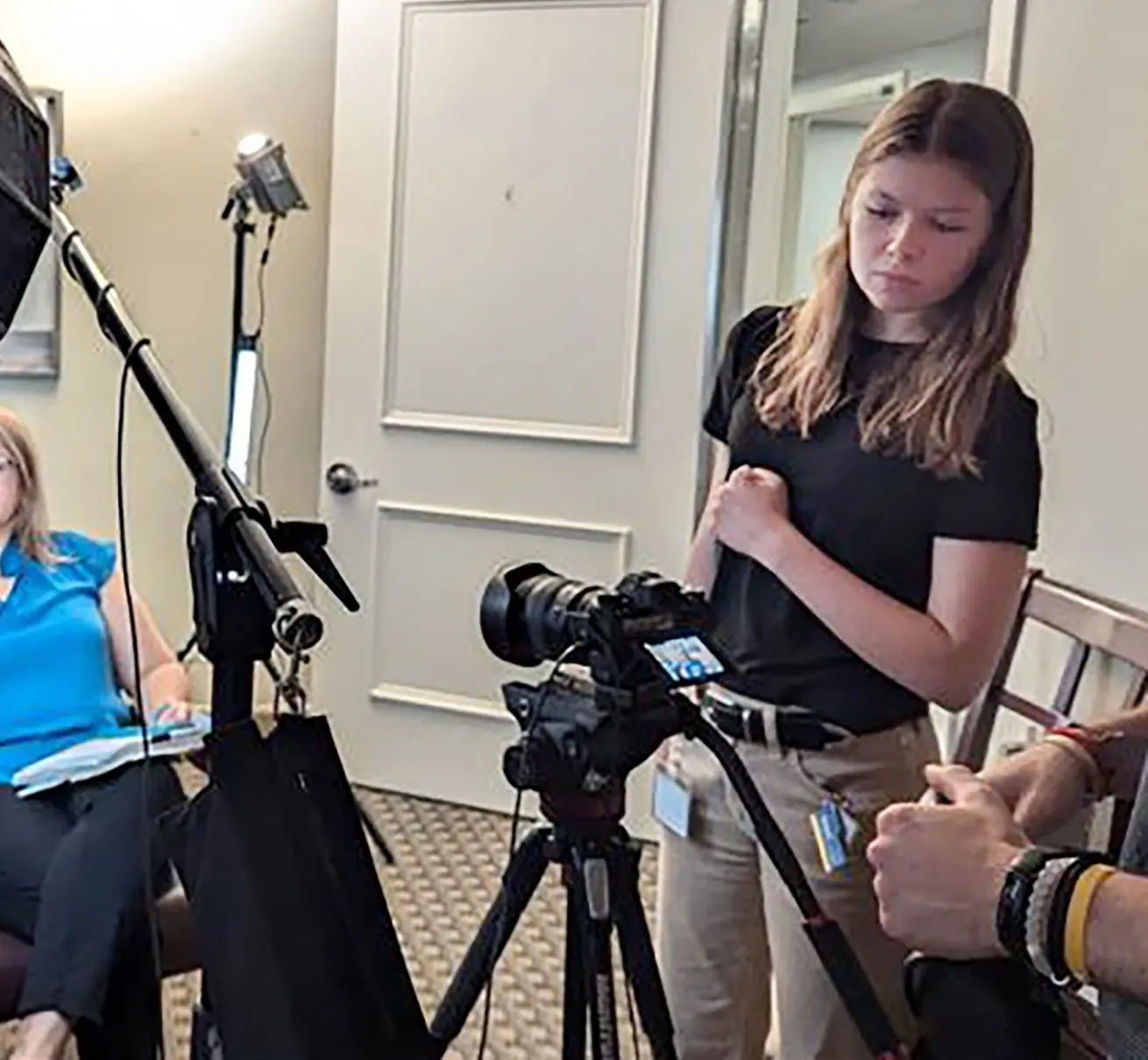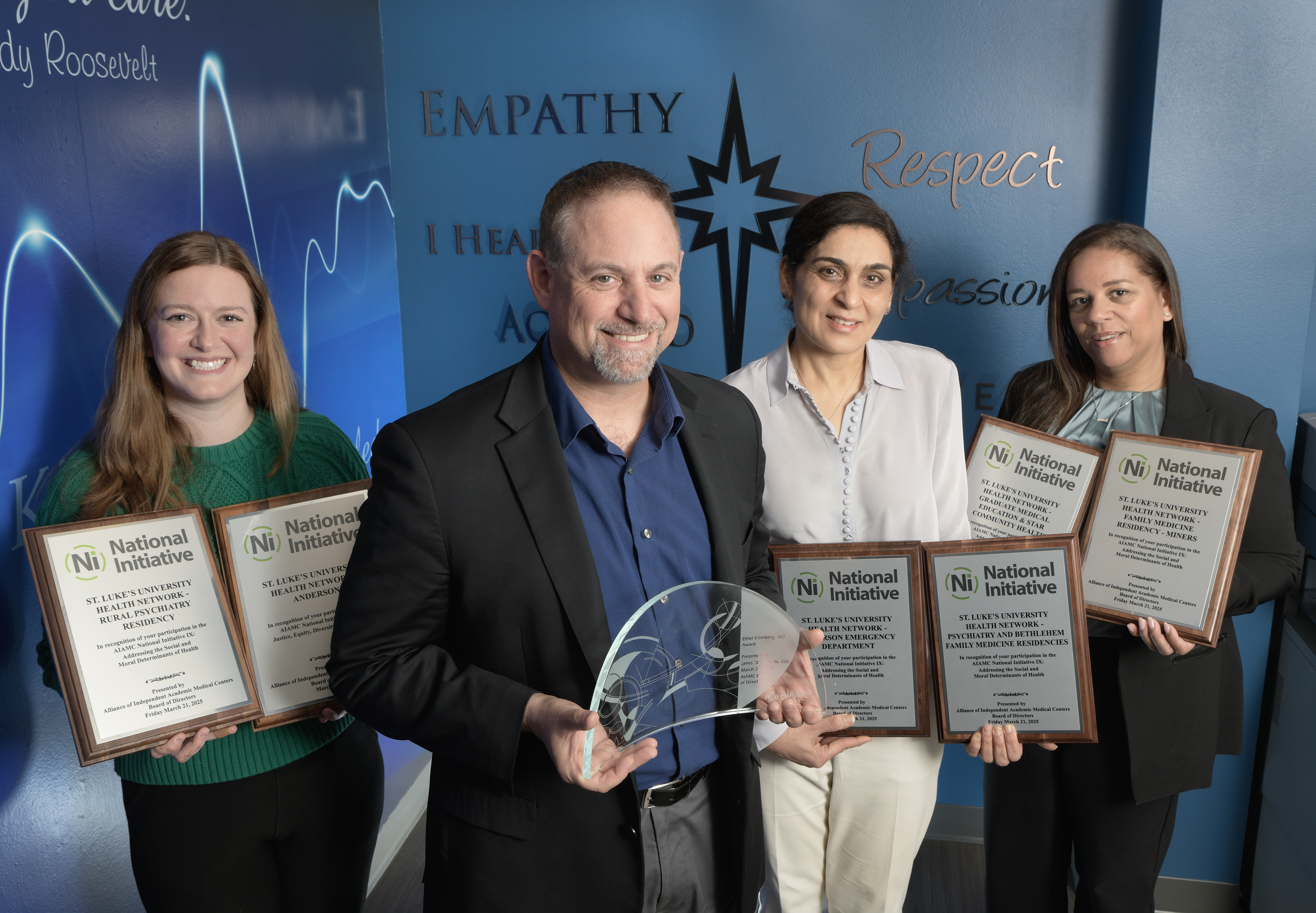Summer Internship Program Provides a Pipeline of Talent into the Network
January 07, 2025

Sadie Kennedy, on right, on a shoot for the Network.
It may be wintertime, but as manager of St. Luke's Career Navigation, Andrea Reger is already preparing for summer. Reger, who joined St. Luke’s in 2022, has helped to expand the Network’s summer internship program, increasing the number of non-clinical paid internships and participating departments.
"Internships are a pipeline of talent into the Network," she said. "Often interns come back as full-time employees or serve as brand ambassadors on their campuses, talking about their positive experience at St. Luke's."
The program is one of many initiatives Reger leads to support St. Luke's efforts to recruit and retain talented and engaged employees. Most interns work in paid positions for 20 to 40 hours per week for 12 weeks. In 2024, interns worked in many departments, including HR, IT, Learning and Development, Community Health, Marketing and Materials Management. Some interns supported administrative projects in clinical departments, such as Behavioral Health and Outpatient Rehabilitation.
Matching the department's needs with capable students looking for career experience takes thought, planning and time, Reger said. "It's critical we are ready to accept internship applications and extend offers in February and March during the spring recruitment season. To attract the most competitive candidates, managers need to make internship plans early, putting the process in place well before internships start in May or June."
Reger recruits from colleges nationwide and uses Handshake, an online career management tool, to market the internships. The new Career Paths website also bring awareness to the internship program. Throughout the winter, she attends career fairs and visits local universities to spread the word, which has resulted in a more competitive internship program.
"Students often say, 'I want to help people.' And I point out that every position within a hospital is directly or indirectly helping people," she said. "Hospitals couldn't run without the support of non-clinical departments."
Sadie Kennedy, a senior majoring in film and TV at Boston University, worked on St. Luke’s on Media Production Services team. Considering a career in film editing, she welcomed the opportunity to edit digital footage and create videos used in social media posts and on St. Luke's website, including Find a Doctor videos. She attended planning sessions, offered ideas, interviewed physicians and operated the camera. Among her more interesting projects was a piece on Franklin, the therapy dog who works with physical therapists, and another about the bee hives at St. Luke's Anderson Campus. She will add the videos to her portfolio, showing her capabilities.
Experience gained will also help her with her university's senior project of making a video. "I'm much more comfortable making the video on my own due to the experience I gained at St. Luke's. My internship has taught me how to set up lighting, use the camera and on-set etiquette. Personally, it was a very good experience."
Rory O'Connor, a Lehigh University Business Information Systems senior, worked in the Supply Chain Department on Project Nexus, a PAR (periodic automation replenishment) inventory management initiative to optimize items kept in stock.
"We are trying to right size our PARs and I was in charge of creating a standardized process at each campus," he said. "I worked with Inventory control, clinical staff and Deloitte (consulting firm) to make these decisions. My project isn't finished yet, but we are expecting $100,000 of savings or more."
In addition to working in their departments, interns receive skills-building workshops, networking events, lunch-and-learn sessions, one-to-one career coaching and social activities. The career development offered in the intern program and the professional work experience help interns become better employees.
"There's great data that supports that interns who turn into full-time employees have a higher retention rate than other employees because they had the opportunity to test drive the role and get to know the manager and the team," Reger said.
She believes that when interns get a chance to experience St. Luke's culture, they will also choose to stay and continue their careers in the Network. Reger shared, "Internships are a powerful tool to attracting the next generation of health care professionals."
For more information, see: https://www.slhn.org/careers/students-career-paths/paid-internships.
Read More NewsLatest News


April 10, 2025
National Recognition for SLUHN Graduate Medical Education

April 09, 2025
In Safe Hands Award

April 08, 2025